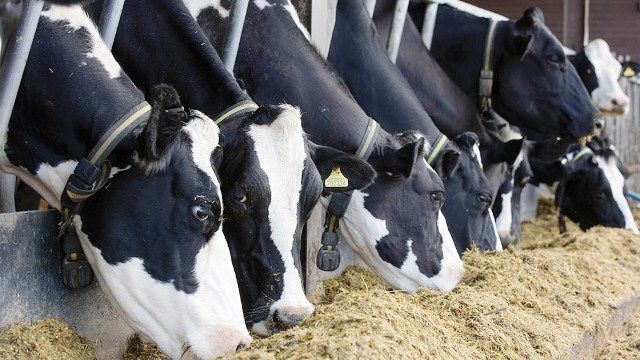
Maintaining livestock hygiene is essential for the health and vitality of your livestock as well as preventing the spread of diseases and infections. Disinfectants are an important tool in this field and can effectively eliminate germs, viruses and fungi from surfaces, equipment and your livestock environment.
In this article, we will review the different types of disinfectants for different livestock and help you choose the most suitable disinfectant for your specific needs.
1. Types of disinfectants:
Disinfectants are generally divided into two main categories:
Chemical disinfectants: These types of disinfectants use strong chemicals to kill germs. Some of the most common chemical disinfectants include:
- Chlorine: Chlorine is one of the most common and affordable disinfectants. This substance is effective against a wide range of microbes and can be used to disinfect surfaces, equipment and drinking water.
- Iodine: Iodine is another strong disinfectant that is effective against viruses, bacteria and fungi.
- Ammonia: Ammonia is a strong and inexpensive disinfectant that can be used to disinfect surfaces and equipment.
Natural disinfectants: These types of disinfectants use natural ingredients such as vinegar, tea tree oil and grapefruit extract to kill germs. Natural disinfectants are usually not as strong as chemical disinfectants, but they can be a safer and more environmentally friendly alternative.
2. Choosing the right disinfectant:
Choosing the right disinfectant for your livestock operation depends on several factors, including the type of animal, the type of microbes you want to kill, and the surfaces or equipment you want to disinfect.
- Consult your veterinarian: Your veterinarian can recommend the best disinfectant for your pet’s specific needs.
- Read the product label carefully: Before using any disinfectant, be sure to read the product label carefully and follow the directions for use.
- Look for disinfectants that are effective against a wide range of germs.
- Avoid disinfectants that are toxic to animals and humans.
- Avoid disinfectants that have an unpleasant smell.
3. Disinfectants suitable for different animals:
- Cattle: You can use chemical disinfectants such as chlorine, iodine or ammonia to disinfect the surfaces, equipment and environment of cattle breeding. You can also use natural disinfectants such as vinegar or tea tree oil.
- Sheep and goats: You can use chemical disinfectants such as chlorine, iodine or ammonia to disinfect the surfaces, equipment and environment of sheep and goats. You can also use natural disinfectants such as vinegar or tea tree oil.
- Chicken: You can use chemical disinfectants such as chlorine, iodonia to disinfect surfaces, equipment and poultry environment. You can also use natural disinfectants such as vinegar or tea tree oil.
- Horse: You can use chemical disinfectants such as chlorine, iodine or ammonia to disinfect the surfaces, equipment and environment of the horse stable. You can also use natural disinfectants such as vinegar or tea tree oil.
4. Important points about the use of disinfectants:
Always wash your hands with soap and water before using any disinfectant.
Use disinfectants in ventilated areas.
- Author: makian
- Date: December 25, 2024
